This month we bring you news from Bolivia, Argentina, Chile, Peru, Ecuador, and Venezuela
Highlights are:
- A new study details how lithium mining in Argentina, Bolivia, and Chile has caused severe and ongoing human rights impacts, especially for indigenous peoples and the environment.
- In Chile, three police officers have now been convicted for the brutal beating of Moisés Órdenes during a peaceful protest in 2019, ruling they used disproportionate force but stopping short of labelling it torture
- President Javier Milei has vowed to veto a $98 million increase in funding for the national public health system, passed by Congress.
- In Peru, The amnesty bill, which was approved by the country’s congress last month, has been passed into law following signature by President Boluarte. The legislation prevents the criminal prosecution and conviction of former soldiers, police officers and self-defence committee fighters accused of serious human rights violations; Amnesty has strongly criticised the legislation.
- In Ecuador, Human Rights Watch has reported that oil extraction is continuing in the heart of Yasuni National Park in the Amazon rainforest despite a vote by the Ecuadorian people in 2023 to halt all current and future oil drilling
ARGENTINA, BOLIVIA and CHILE
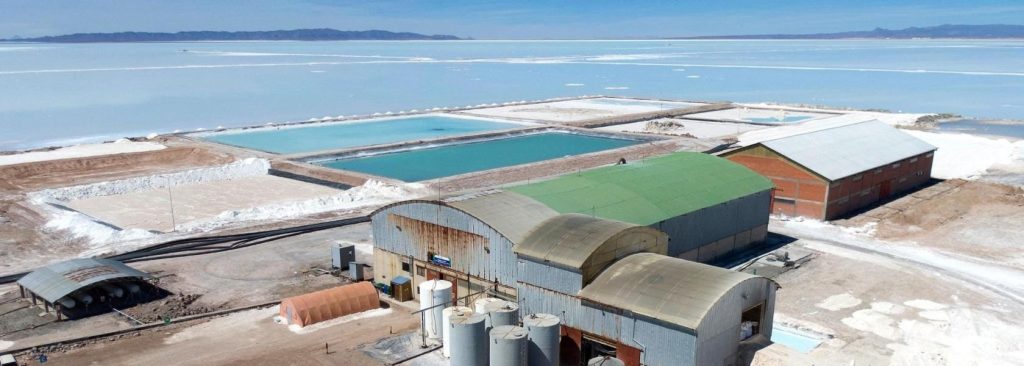
A new study details how lithium mining in Argentina, Bolivia, and Chile has caused severe and ongoing human rights impacts, especially for indigenous peoples and the environment. The report highlights failures both by states and companies to respect, protect, and fulfil rights, and calls for urgent structural reforms and international accountability. Otherwise, the surge in demand for lithium will be at the expense of those most directly affected by extractive activities on the Andean salt flats, which indigenous peoples have historically inhabited.
Environmental defenders are met with violent repression and harassment for denouncing the lack of consultation, information and compensation. In Argentina, the Jujuy province is within this lithium triangle and the subject of Amnesty’s recent report. Bolivia has the world’s largest lithium reserves, but its production is relatively low. In northern Chile, a lithium partnership between state-owned copper producer Codelco and lithium miner SQM was temporarily suspended in July. Two Indigenous groups filed legal challenges, arguing that the consultation process did not adequately seek their input on the partnership.
CHILE
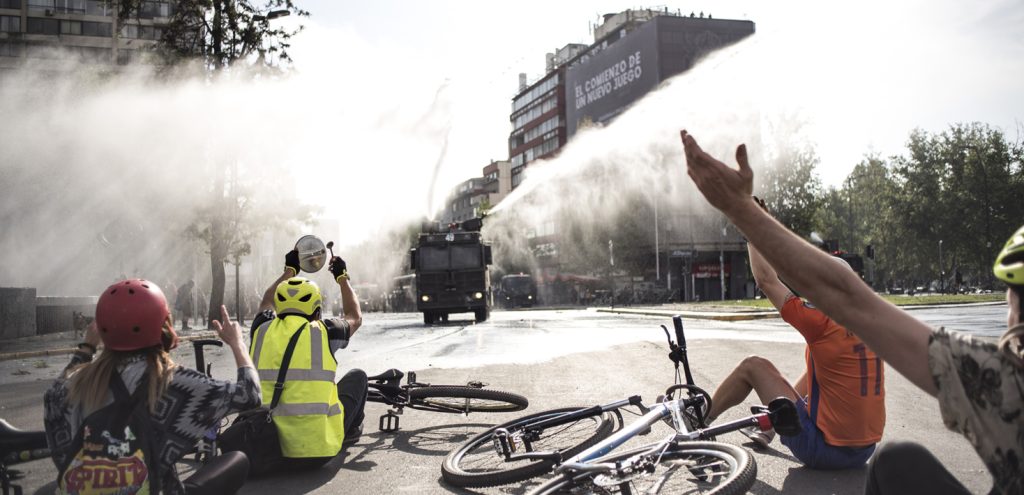 Three police officers have now been convicted for the brutal beating of Moisés Órdenes during a peaceful protest in 2019, ruling they used disproportionate force but stopping short of labelling it torture. One officer was also found guilty of obstructing the investigation and falsifying records, while most of the original defendants were dismissed from the case. Amnesty International welcomes the verdict as a step toward justice but warned that impunity for human rights violations in Chile remains a serious problem. It calls on the state to ensure truth, justice, and full reparation while preventing future abuses during demonstrations.
Three police officers have now been convicted for the brutal beating of Moisés Órdenes during a peaceful protest in 2019, ruling they used disproportionate force but stopping short of labelling it torture. One officer was also found guilty of obstructing the investigation and falsifying records, while most of the original defendants were dismissed from the case. Amnesty International welcomes the verdict as a step toward justice but warned that impunity for human rights violations in Chile remains a serious problem. It calls on the state to ensure truth, justice, and full reparation while preventing future abuses during demonstrations.
ARGENTINA
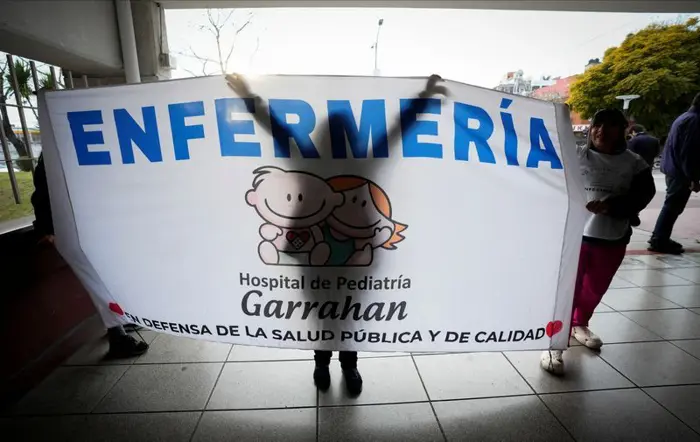
President Javier Milei has vowed to veto a $98 million increase in funding for the national public health system, passed by Congress. The Garrahan Children’s Hospital in Buenos Aires has become a symbolic battleground in a worsening crisis for state hospitals, with public anger fuelled by staff reductions and delays in patient care. “The wage gap (compared with the private sector) is driving many people to leave. Teams fall apart, and quality care is no longer provided,” said Santiago Weller, head of urology at Garrahan.”
Amnesty International highlighted the story of Erika Noely Moreno, a trans rights activist from Ushuaia, in the south. Moreno, who faced discrimination and exploitation from childhood, found acceptance in Ushuaia and now advocates for dignity and justice for older trans women who remain marginalised despite Argentina’s legal advances. Layoffs under Milei have disproportionately affected LGBTQ+ workers, many of whom were employed under a 2021 trans employment quota law. The government has also dissolved the National Institute Against Discrimination, Xenophobia, and Racism, which provided crucial support to LGBTQ+ individuals.
PERU
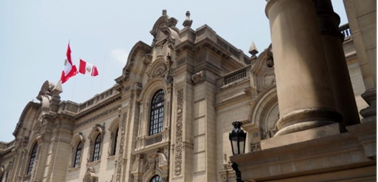
The amnesty bill, which was approved by the country’s congress last month, has been passed into law following signature by President Boluarte. The legislation prevents the criminal prosecution and conviction of former soldiers, police officers and self-defence committee fighters accused of serious human rights violations in the country’s fight against leftist insurgents of the Mao-inspired Shining Path and other groups.
Amnesty has strongly criticised the enactment of the law, which violates the Peruvian state’s obligations under international law and sets a serious precedent. Its implementation will affect at least 156 cases where a final sentence has been issued, allowing those responsible for crimes against humanity and serious human rights violations to regain their freedom. The cancellation of cases currently under investigation or in court proceedings sends out a message of indifference and impunity towards the pain and rights of the victims and their families, who have spent decades seeking justice, truth and reparation. Amnesty has warned of increasing authoritarian practices and impunity in Peru as a result of this and other legislation.
Amnesty has produced a new commentary document providing an overview of the main human rights issues currently faced in Peru, highlighting risks to the safety and freedom of expression of human rights defenders, journalists and civil society organisations, and recent laws and bills that limit or undermine spaces for expression, assembly and participation of civil society organisations. It lists recommendations to the Peruvian State with a list of measures that Peru needs to take to protect human rights defenders and civic space.
ECUADOR
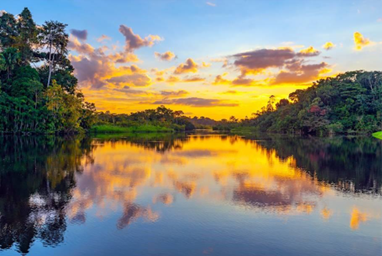
Human Rights Watch has reported that oil extraction is continuing in the heart of Yasuni National Park in the Amazon rainforest despite a vote by the Ecuadorian people in 2023 to halt all current and future oil drilling in one of the most intact sections remaining in the Amazon River Basin. Two year’s later, only a handful of the approximately 240 wells have been closed. Yasuni National Park is home to Indigenous peoples, including some who live in voluntary isolation. Human Rights Watch has documented how fossil fuel production, which drives catastrophic climate change, harms the rights of communities adjacent to fossil fuel infrastructure.
VENEZUELA
Security forces in Guyana say a boat carrying election officials and ballot boxes was shot at “from the Venezuelan shore” in the contested Essequibo region. Police and the Guyana defence force said in a joint statement that the incident occurred on Sunday, ahead of the South American nation’s general election on Monday. Venezuela has denied being behind incident, which comes amid a territorial dispute between the two nations over the oil-rich Essequibo region.
The U.S. recently boosted its maritime force in the waters off Venezuela and has more vessels expected to arrive next week, citing concerns that some Venezuelans were participating in large-scale drug operations. Venezuela has responded to the US threats by sending warships and drones to patrol its coastline and launching a drive to recruit thousands of militia members to bolster domestic defences.
While the US has made no public threats to invade Venezuela, Trump’s threats against the country have focused chiefly on its powerful criminal gangs, particularly the cocaine trafficking Cartel de los Soles, which the Trump administration has designated a terrorist organisation and accused Maduro of leading.
OUR TEAM AND YOU
All the best,
South America Team – David Rogers (Argentina and Chile), James Baird (Venezuela) and Graham Minter (rest of South America,). And please don’t forget that you can follow us on our Facebook page and Twitter.